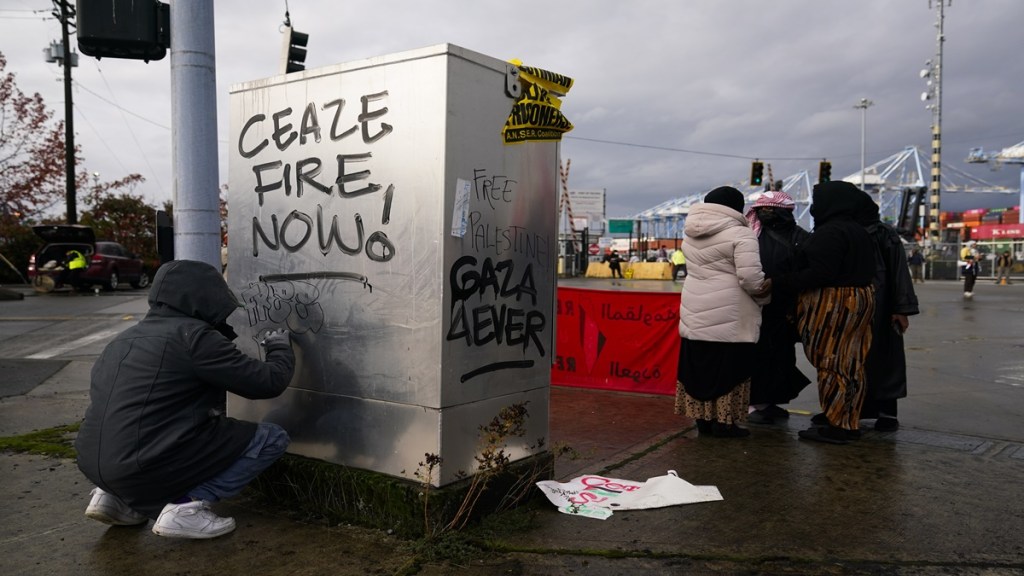One month of Israel-Hamas War: November 7 marks the tragic one-month of the Israel-Hamas war, a conflict that has claimed the lives of thousands of civilians. Since the unexpected attack by Hamas on Israel on October 7, 2023, the Israeli armed forces have consistently launched airstrikes on Gaza with the aim of “eliminating” Hamas.
Arabs’ response to Israel-Hamas war
Since the war began, it looks like the Arab governments have been facing a challenging dilemma over their response to the whole conflict. The initial Arab public response was characterized by a secular and moderate tone. In reaction to Hamas‘s actions on October 7, various Arab governments, civil society organizations, and influential social media accounts promptly condemned the violence and called for the protection of lives on both sides. When voices, both from governmental and non-governmental sources, failed to acknowledge the targeting of Israeli civilians, their one-sided perspectives were swiftly marginalized.
As the war raged on, Arab neighbours then called for a humanitarian corridor for Palestinians from Gaza. And on October 26, amid intensified Israeli bombardment of Gaza, nine Arab foreign ministers bluntly came out and issued a statement reaffirming their opposition to violence and the killing of civilians.
We have witnessed how the Arab public sphere advocated for pro-life values without mentioning anything about Hamas’ actions. Instead, many Arab commentators were seen highlighting the daily challenges faced by Palestinians in the West Bank due to the expansion of Jewish settlements, in East Jerusalem as a result of forced displacement, and in Gaza due to the inhumane blockade.
UAE’s warning of regional spillover
Egypt shares a border with Gaza, and Jordan borders the Israeli-occupied West Bank. Both have issued warnings against the forced displacement of Palestinians from their land. This reflects deep-seated Arab concerns that Israel’s recent conflict with Hamas in Gaza could lead to a new wave of permanent displacement from territories where Palestinians aspire to establish a future state. Egyptian President Abdel Fattah al-Sisi had stated, “This is the cause of all causes, the cause of all Arabs. It is vital for the Palestinian people to remain resolute and retain their presence on their land.”
The United Arab Emirates had earlier warned that there was a risk of a regional spillover from the Israel-Hamas war in Gaza, adding that it was working “relentlessly” to secure a humanitarian ceasefire.
It is worth noting here that the UAE stood out as the leading Arab nation to sign the 2020 Abraham Accords, a set of agreements with Israel. Israel had aspired for these accords to build a path towards normalized relations with Saudi Arabia. However, the ongoing conflict has posed a setback to these aspirations.
“The risk of regional spillover and further escalation is real, as well as the risk that extremist groups will take advantage of the situation to advance ideologies that will keep us locked in cycles of violence,” Noura al-Kaabi, a minister of state for foreign affairs, told a policy conference in the capital, Abu Dhabi, reported Reuters.
Arabs call for a ceasefire in Gaza
Egypt and Jordan on November 4 urged US Secretary of State, Antony Blinken, for an immediate ceasefire in the city as fresh airstrikes from Israeli troops hit UN_run schools.
However, during a press conference, Blinken reiterated Israel’s stance, stating that a ceasefire would potentially allow Hamas, the Palestinian organization in control of Gaza, to regroup. This information was reported by the Reuters news agency. The United Nations and international powers have yet to reach a consensus on how to address the conflict.
